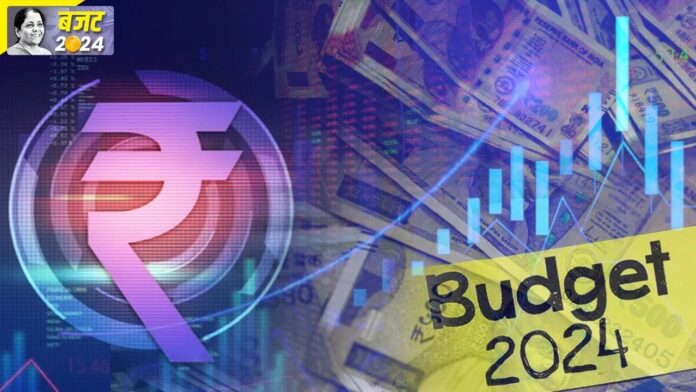In the name of investment in India, ordinary people buy gold, buy a house and make profit by selling it after a few years, but today the Finance Minister changed the calculation of profits made by buying and selling houses. Now more taxes will have to be paid to the government on the sale of properties, because in the 2024 budget, Finance Minister Nirmala Sitharaman has completely abolished indexation of all non-financial assets. These non-financial assets include things like property, gold and silver.
In the earlier system, the capital gains period for gold was 36 months and there was a separate period for property, along with this there was a separate period for non-financial asset stocks and bonds, but now two periods will apply, with the first 12 months on bonds. Long-term capital gains tax will be applicable on gold and property after one month and long-term capital gains tax on gold and property after 24 months. The government has changed the rate of long-term capital gains tax, wherein the tax rate on investments in stocks, mutual funds and bonds has been increased from 10 to 12.5 percent. While on gold and property it has been reduced from 20 to 12.5 percent.
Although you may be happy for a short while thinking that the government has reduced the long-term capital gains tax on gold and property, so you will now have to pay less tax, but the real story begins after this. Because till now people were benefiting from indexation for saving gold and property, which has been abolished in this budget.
You might be wondering what indexation is, so understand this as well. In indexation, tax exemption is available based on the rate of inflation and the money spent on the repair or development of the property. Under which, a person who invested money in non-financial assets for a long time used to get tax exemption on the profit earned after selling them.
Base year of indexation
Initially the base year 1981-82 was considered but taxpayers were facing difficulties in obtaining valuation of properties purchased before April 1, 1981. Therefore the government decided to change the base year to 2001 so that the valuation could be done properly and the indexation at that time was considered as 100.
Financial year (CII)
- 2001-02———–100
- 2002-03———–105
- 2003-04———–109
- 2004-05———–113
- 2005-06———–117
- 2006-07———–122
- 2007-08———–129
- 2008-09———–137
- 2009-10———–148
- 2010-11———–167
- 2011-12———–184
- 2012-13———–200
- 2013-14———–220
- 2014-15———–240
- 2015-16———–254
- 2016-17———–264
- 2017-18———–272
- 2018-19———–280
- 2019-20———–289
- 2020-21———–301
- 2021-22———–317
- 2022-23———–331
- 2023-24———–348
- 2024-25———–363
Understand an example like this.
If you bought a property in the year 2001 for Rs 10 lakh and in the year 2024-25 you sell it for Rs 90 lakh, then your profit or say capital gain is Rs 80 lakh. LTCG i.e. long term capital gains tax is levied on this capital gain. In which if you subtracted the indexation of Rs 80 lakh, you had to pay tax on the subsequent amount but after what the Finance Minister did in this budget, experts assume that now you will have to pay more than before.
How to calculate indexation?
Indexation was 100 in the year 2001-02 which was increased to 363 in 2024-25. In such a situation, Rs 10 lakh of the year 2001 is multiplied by the cost inflation index of the year 2024-25 and divided by the cost inflation index of the year 2001-02 and the amount obtained is subtracted from the quantity sold which is its indexation (Indexation) is the amount and after deducting it from the amount sold, long term capital gains tax is paid on the amount.
10,00,000 x 363/100 = 3,630,000 This is the indexation amount.
80,000.00 – 3,630,000 = 4,370,000, the first tax of 20% must be paid, which was 874,000
Now the government has abolished indexation, so tax will have to be paid at the rate of 12.5% on Rs 80 lakh, which will be equivalent to Rs 1,000,000.

